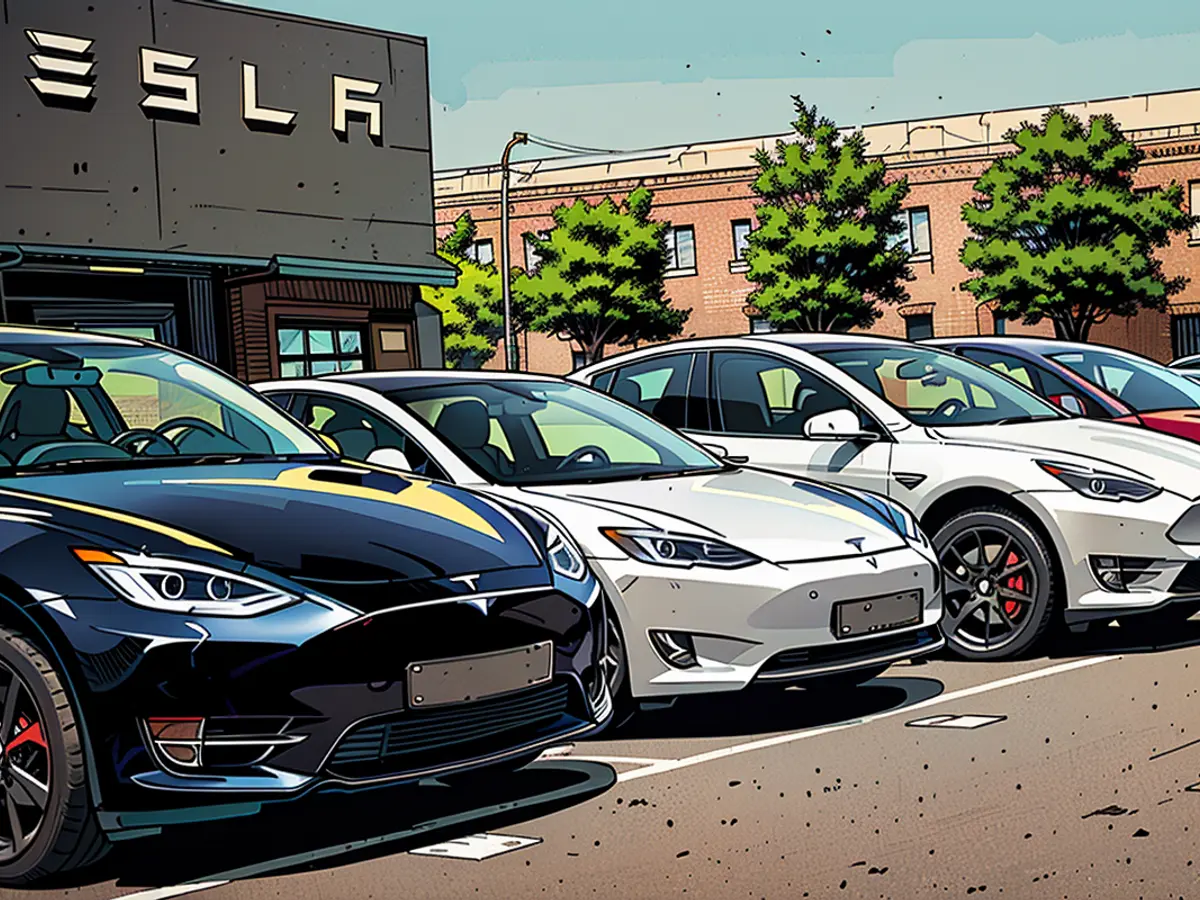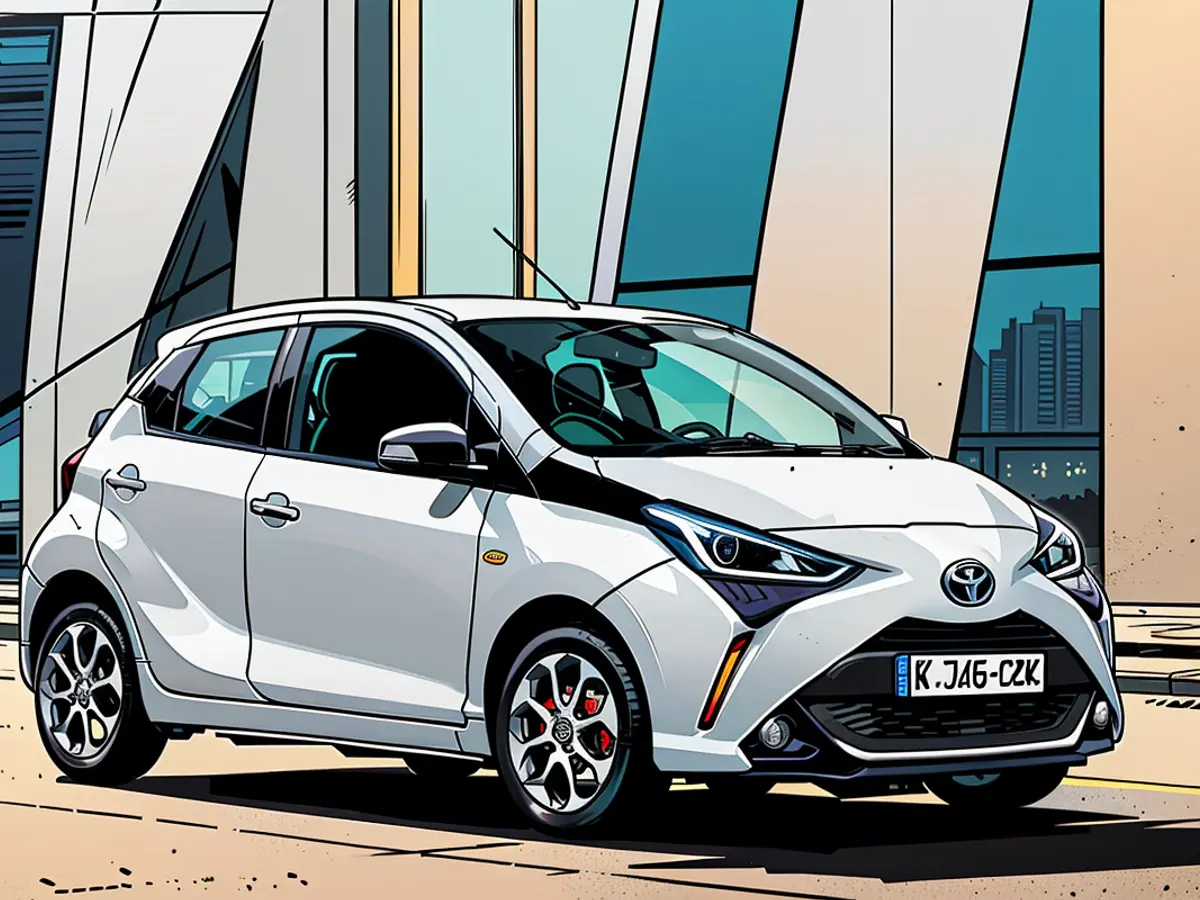Electric mobility - In Germany, a surplus of electric cars has arisen with around 100,000 unsold vehicles.
The electric car crisis in Germany is worsening, with mountains of unsold cars littering the country. A report in "Spiegel" and satellite images taken near Berlin reveal the grim reality of the situation. Tesla is just one example, but elsewhere in the country, it might not be quite as bad, yet still concerning. According to the Chemnitz Automotive Institute (CATI), a startling contradiction exists: 973,000 electric cars were manufactured in Germany in 2023, a record-breaking figure. However, there have also never been so many unsold vehicles, which are decaying on storage lots and in dealerships.
Exports to the rescue - for now
Although this number may seem daunting, it is partially offset by the fact that 80% of those vehicles are exported. As a result, they can keep up with the "production-demand disconnection," where production far exceeds domestic demand. However, Professor Dr. Werner Olle, founder, and economist at the institute, cautioned against relying solely on exports to solve the problem. "The disconnection between production and domestic demand has its limits in the medium term. The export valve can't fix everything," he said.
Furthermore, Germany imported approximately 446,000 vehicles in 2023, with 29% of them being electric cars from China. Totaling the number of pure electric cars registered in Germany to 524,200 and the remaining 187,000 domestically produced cars that weren't exported, a surplus of 108,800 vehicles is apparent.
Selling is tough
Following the federal government's abrupt withdrawal of electric car subsidies in December, it's unlikely that any significant increases in new registrations will happen in 2024. Some manufacturers, including Mercedes-Benz, have had to abandon their ambitious plans for a shift to electric powertrains and are now postponing the discontinuation of combustion engines. They're trying to adapt to the enduring demand for gasoline and diesel cars. Last year, Germany produced 2.4 million vehicles; twice as many combustion engines were manufactured as electric cars, a ratio that's likely to remain constant.
Naturally, the solution for the surplus of electric cars is simple - their prices must plummet. Few electric cars in Germany cost less than 25,000 euros, regardless of size, which is too much for most people. They're waiting for more affordable models where performance doesn't suffer. Cars like the VW ID.1 are on the horizon, but for now, they're mere dreams.
Cheap electric cars? In the future, maybe.
During an interview with stern, Smart-Deutschland CEO Wolfgang Ufer addressed the issue of affordable electric cars. He stated that it's currently impossible to create such vehicles due to technical reasons. The cost of batteries, motors, and other technology far exceeds the desired price range for these consumers, especially when they expect a certain level of performance and range. However, he hinted at potential parking lots being built by Tesla at Neuhardenberg Airport, which would alleviate the congestion issue caused by trucks transporting the unmoved vehicles.
Read also:
Despite the record-breaking production of 973,000 electric cars in Germany in 2023, many remain unsold, with Tesla being one of the affected brands. The surplus of electric cars, totaling 108,800 vehicles, is largely due to the lack of demand and high prices, with few models costing less than 25,000 euros.
To address the issue, German automakers are postponing the discontinuation of combustion engine vehicles and are hopeful for the introduction of more affordable models like the VW ID.1. Meanwhile, Smart-Deutschland CEO Wolfgang Ufer mentioned the potential construction of Tesla parking lots at Neuhardenberg Airport, which could help alleviate the congestion caused by the surplus of electric cars.








